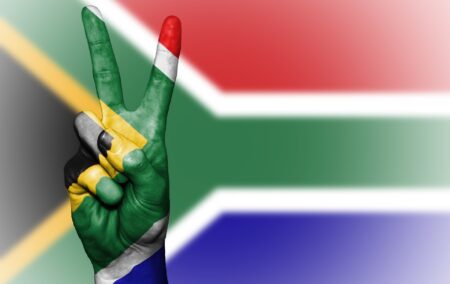It’s no secret that South Africa today is being crippled by corruption and a drowning economy. This was not always the case.
A little over a decade ago, South Africa, warts and all, was riding high. We had crossed over from a deadly spiral of confrontation and low-key civil war to become a democracy and a genuinely free society. South Africa was the miracle society. Above all, as a country, South Africa was respected…
This was largely a result of the nation’s soft power. This is simply the country’s attractive qualities. Soft power persuades rather than compels, and it is precisely this that opened the door to South Africa’s global standing in what can best be described as the country’s early ‘honeymoon’ phase.
Post-apartheid South Africa created new institutions and a liberal constitution that was well respected globally. The economy was growing nicely. This was a period of global glory for our rainbow nation. In this time, South Africa became a key member in numerous multilateral organisations. The country also played host at many international conferences and a large number of sporting tournaments.
South Africa didn’t so much punch above its weight – as the phrase went – as it made its peer nations want to embrace it.
It’s rather different today. With poor leadership, incompetence and outright greed by many of those who hold power in this democracy, South Africa has seen an unfortunate, and seemingly never-ending, decline. Reviving the country will be no easy task, but in doing so, there will be a significant role for soft power. How is this?
The reputation and values of a country are central to its soft power. Soft power is incubated by exposing the world – both other states and their peoples – to what a country has to offer.
One of the most vital assets South Africa has is its colourful lifestyle. Once the destructive politics is set aside, there remains a sense of pride that comes with being South African. This is largely due to South Africa being a diverse and unique nation.
Vibrant and warm spirit
Having a rich heritage, along with a vibrant and warm spirit, South Africa appeals to people from around the world.
Our cultural diversity embodies the country’s famed and often gruelling history and the impact of iconic politicians and activists, whose influence has moulded the land we call home. The wisdom of those who shaped South Africa should not be forgotten, as we try to restore the country to what it can be. South Africa’s greatest gift and strongest advantage is the nation’s belief in togetherness. Ubuntu reminds us that we are bound by compassion towards others. This is a narrative we can build on for ourselves, and in our interaction with others.
Another strong point which deserves to spotlighting would be the many South African business groups, whether we are talking about our mining giants, our retail brands or our banks, which have become known throughout Africa, and in the world at large.
We often forget just how resourceful we are and what we can achieve if we are enabled to do so. As globalisation proceeds, the presence of local brands on the international market is not only an economic contributor, but an ambassadorial message that reminds the world that South Africa is still a country with enormous promise.
A further point which deserves attention is the impact of South African culture and literature. South Africans are a creative people, given the chance. Names like Alan Paton and Njabulo Ndebele in literature, or Tinus de Jongh and George Pemba in painting, are creditable representatives of talent and ability.
The sight of a diverse group of musicians – diverse in background and musical style – coming together to record The Crossing in tribute to Johnny Clegg reminds us of the breadth of our talent (and is probably a better view of our country than our squabbling political class). Even our soap operas have been well received abroad.
International collaboration
I would add that tertiary institutions should dedicate themselves to improving international contact, for the benefit both of South Africans and of their peers from abroad. We should understand that attracting foreign students does a great deal to strengthen international collaboration and learning.
Successful societies throughout history have relied on their soft power – the capacity to influence rather than force. Good leadership goes further than dishing out demands. It also involves pursuing goals with others, which is best achieved through persuasion and shared values. This is why soft power is important, and why rebuilding it is important for the revival of our country.
[Image: https://pixabay.com/photos/south-africa-south-africa-flag-2122942/]
The views of the writer are not necessarily the views of the Daily Friend or the IRR
If you like what you have just read, support the Daily Friend


